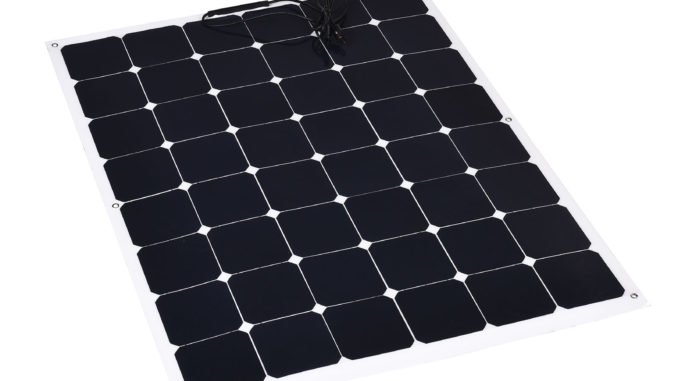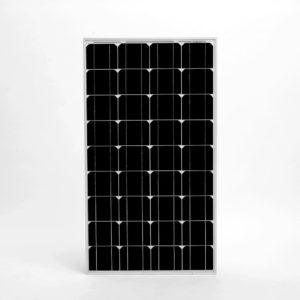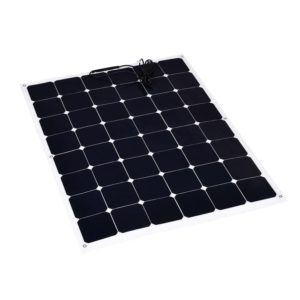
Australia is one of the top solar energy-producing countries in the world. In 2017, Energy Digital placed the country 9th out of 10 nations with large-scale solar power programmes and resources. According to the article, there were more than “20 solar projects” in the country in 2017. Australia’s push for renewable energy continues to this day.
Many households in the country are now utilising solar panels, solar lights, solar energisers, and other solar-powered tools and equipment. These products are sold with affordable rates and have good quality. Households in urban and rural areas are now willing to install solar panels on their rooftops. News organisations also highlight the importance of solar energy in the Australian economy.

To better understand solar-powered products, the following are some of the advantages of solar energy:
- Renewable energy source;
- Eco-friendly;
- Low maintenance;
- Reduced electricity bills;
- Technology advancement;
- Easy installation process
The weather-dependent attribute of solar energy is perceived as both good and bad. People are concerned that solar panels might be useless when the weather is gloomy, with the sun covered by the clouds. Despite dozens of research materials about the benefits of solar panels, thousands of people are still not sold on the idea. In fact, some groups argue that solar panels are not that reliable and sufficient compared to electricity supply. Others claim that solar panel products are too pricey and that the investment is not worth it when it comes to quality.
Whilst there were significant upgrades on the solar panel technology, some individuals are still reluctant to purchase or try these products simply because of false information or myths.
Well, it is time to bust these myths and emphasise the value of solar panels and what these products can do for you and your family. Here are the top ten solar panel myths and the truth behind them.
Solar panel myth #1: Solar panels are useless during the cold and cloudy days
The truth is that solar energy technologies these days are efficient during sunny, cloudy, cold, and gloomy weathers. Despite the absence of the sun rays, solar panels are still able to capture light and generate a large amount of solar energy for later use. Believe it or not, solar panels remain reliable when it is cold outside. During cloudy days, a solar panel is able to produce about 25 percent of their usual energy output. In short, solar energy can also be harnessed during cold and cloudy days. Active and direct sunlight, of course, provides more solar energy. To fully utilise your solar panels, you must reside in an area with a warm climate.
Solar panel myth #2: Solar energy is costly and is not worth it
This might be true a decade ago, but with more investments coming in for solar energy, solar-powered products have become more affordable. These products are not exclusive to the rich anymore. Whilst solar panels and other products are not cheap, they are becoming more affordable and within reach of average households.
Solar energy is also more cost-effective compared to coal. With regular cleaning and maintenance, solar panels will surely last for many years. With that, you get years of solar energy for only a couple of payments. Not only that, some people are actually spending $0 with innovative DIY solar panels.
DIY panels are able to efficiently harness solar PV and convert it into energy. Manufactured solar panels are of course more advisable, if you really want a reliable solar energy supply. To add another solar fact, panel installation is not that expensive, especially if you have the resources and methods to install the panels yourself; otherwise, installation would be better left to the experts.
Solar panel myth #3: A tracking system is necessary
No, it is not. A tracking system is not required and some people even say these resources are useless. Professionals who install panels strategically position each panel in order to maximise the generation of solar energy. Tracking systems are alright, but putting these products up will cost you money which you don’t have to spend in the first place.
Solar panel myth #4: Excess solar energy is stored in batteries for future use
Most solar panel technologies don’t have built-in batteries. Excess energy is actually transmitted back to the electrical grid if your panels are connected to it. That way, you are able to save and give back energy. In many areas in Australia, households are actually awarded electricity credits for producing and then saving solar energy. Out of the ten solar panel myths to be listed, this is the top one you need to take note of. Families are then able to utilise stored energy from the grid in the future. By remaining connected to the grid, you will be assured of continuous power supply 24 hours a day.
Solar panel myth #5: Solar panels are bad for your roof
Some people are worried that after placing solar panels on their rooftops, the material will eventually break down. It is actually the other way around. Rooftops, no matter what material they are made of, are protected from severe heat by the solar panels and that sunlight is then converted into something beneficial. With the sturdy panels on your roof, the chances of leaking and damage are minimised. Solar panels are also not noisy on the roof. There are no machinery or wheels inside these technologies. Solar panels are actually quiet. The loud sound most people mistake for is actually produced by the panel’s inverter and it is not as loud as other appliances in your home like air-conditioner, unless you’re standing close to it, which is not advisable in the first place.
Solar panel myth #6: Roof solar panels are better compared to folding panels
When it comes to solar panels, one particular product is better only in terms of its maximum power or system voltage. There are no significant differences between roof and folding solar panels. Some panels are just able to produce more solar energy. With this idea in mind, some people prefer roof panels instead of foldable ones. Foldable solar panels are actually handier and not to mention, portable. In Australia, portable solar panels are popular, especially for outdoor activities like camping and hiking. It is also important to know that the prices of solar panels are different not because of the type, but because of their power output rating as measured in watts.
Solar panel myth #7: Real estate agents and solar panels do not get along
It is true that some people in search of new homes don’t like solar panels installed on the rooftop, but that does not automatically indicate that homes with solar panels are hard to sell. Households with solar panels are actually in demand in Australia, with the country furthering its national solar energy campaign. More people are rallying behind this cause for solar energy, especially if it is connected to the electrical grid.
If you’re a real estate agent, don’t be afraid to showcase the solar panels to potential buyers. That is why education about solar energy in Australia is getting more immersive. Solar energy actually helps other industries such as real estate, agriculture, and manufacturing. Speaking of the manufacturing industry, the process of making solar-powered products is not unfriendly to the environment either. In a span of four years of solar panel usage, the amount of energy used to manufacture the product is generated. And solar panels are designed to last for more than two decades.
Solar panel myth #8: Solar panels don’t last very long
Solar panels can last up to 25 years if seamless solar energy production is well maintained. Several companies and businesses in Australia now provide effective solar panel maintenance services. Solar panels, once fully used up, are also not bad for nature. These products are actually among the most recyclable materials in Australia nowadays. Most solar panel providers provide cheap or even better, free recycling services to customers. So the next time someone tells you that you will only be using your solar panels for a couple of years, you already have a response.

Solar panel myth #9: A rooftop solar panel is an eyesore
Some people are worried that installing solar panels on your rooftop will take away the home’s elegance. This is just untrue. Solar panel products these days take up more stylish and slick designs. Many Aussies believe that solar panels are suitable for all types of architectural styles for homes. Some people even install solar panels on garden sheds. Most likely, you are after the quality, not the appearance of solar panels, anyway.
Solar panel myth #10: Fossil fuel is better when it comes to pricing
The prices of these products depend on the demand. When demand is high, the cost is lower. Solar energy already managed to catch up with fossil fuel when it comes to demand in Australia. Before, you needed at least $1000 to buy a solar panel with 80W max power. Today, you can get the same product for half the price. Solar is, in fact, cheaper compared to fossil fuel. Dozens of reports and periodicals state that solar energy is more renewable, reliable, and profitable.
In Australia, solar energy has the biggest demand. Countries in the Middle East like Oman, Qatar, Saudi Arabia, and the UAE are more dependent on fossil fuel where such petroleum products abound.
More myths on solar energy and solar panels have been busted and more are expected to be dismissed, as additional research findings are made available.
Some Good News
In Australia, the government is offering solar panels, installation, and maintenance services at half-price. For example, in the state of Victoria, more than $1.24 billion was promised by the government to provide affordable solar panels to homeowners. This development will extend up to 10 years and will benefit over 650,000 homeowners with more than $4,000 each. Solar energy is also generating hundreds of jobs for the locals of Queensland.
In a nutshell
Solar energy use in Australia will continue to grow in the coming years, especially as more people become more analytical and practical. The country is facing issues with solar generation assets for farmlands. Dialogues among authorities, experts, and farmers are now in motion.
The facts listed above are also subject to change or improvements. If you are planning to buy your own solar panels, you must equip yourself with all the information you need to maximise the use of these technologies. There are also safety measures to be aware of. Make sure to study those. It is best to leave the installation and maintenance process to the experts. Solar panel products are advanced technologies. As such, their maintenance requires extensive knowledge, capabilities, and tools.
Want to buy some panels?
With the myths busted and good news verified, are you looking forward to buying solar panels for your home? If you are, then you might consider getting in touch with Maxray. The provider offers nothing but the best solar panel products in the country.
Maxray is all about supporting the social energy vision of Australia. You can buy both folding and rooftop solar panels from Maxray and the range of specifications is wide.
For as low as $450, you can buy a folding solar panel with a capacity of 80W, voltage of 20V, and 16.8% cell efficiency. If you want more max power, Maxray also sells solar panels with 240W power and 1000V maximum system voltage. Solar cells are also available. These products are easy to carry around.
Other than these products, Maxray abides by the Australian Consumer Law to ensure consumer rights are enforced when buying products or availing of services. Maxray’s warranty is extensive, especially with a number of retailers attending to a number of patrons. Maxray guarantees quality solar panel products to make sure solar energy is promoted all over the country.
If you are still not convinced with the idea of solar panels, let Maxray show you the ropes.
Solar energy is a great idea, for both the short and long haul. You are not only saving money, but you are also contributing to the global mission of preserving the earth with renewable energy. Visit the Maxray website today!
